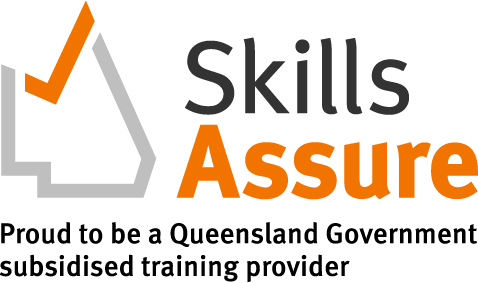BARS Training Australia (RTO 32061) is proud to continue as a Skills Assure Supplier, recognised by the Queensland Government for delivering quality, industry-aligned training that supports meaningful employment outcomes. As part of our ongoing commitment to accessible and impactful education, we are pleased to offer training under the Career Start program—one of the Queensland Government’s core funded vocational education and training (VET) initiatives, administered by the Department of Trade, Employment and Training (DTET). (click here)

What is Career Start?
Career Start supports delivery of entry level training to students, apprentices and trainees aligned with the skill outcomes required by industry. Entry level to obtain a Queensland Security License is a Certificate II in Security Operations. It is the Office of Fair Trading that regulates the security industry and issues these licenses. For more information, go to their website. (click here)
Who is eligible ?
To access a subsidised training place under Career Start, a student must meet the following criteria:
Along with the eligibility criteria above, specific entry restrictions apply to the Certificate II in Security Operations. Students must not identify as a person to whom an automaticdisqualifying offence applies. Automatic disqualifying offences relate to certain recorded convictions within the last 10 years. For more detailed information on this, click the link below to the Office of Fair Trading (click here)
Co-contribution Fees
Given the benefits of training, including improved job opportunities and higher earnings, non-concessional students enrolled in lower-level qualifications, are required to contribute to the cost of training through a co-contribution student fee.
This fee can be paid by an employer, a family member, a friend, or another organisation (like Employment Service Providers), but it cannot be paid or waived.The fee will be due upon enrolment.
Non-concessional Students
BARS Training Australia has decided the non-concessional fee amount to be paid by the student is $20. This represents the total cost to the student for the qualification, including materials costs. Payment can be made by major credit cards, Paypal, direct debit or cash upon enrolment.
Concessional Students
BARS Training Australia has decided to provide concessional students with fee-free training for the Certificate II in Security Operations in line with Career Start funding rules for lower-level vocational qualifications. No co-contribution fee will be required for concessional students.
Student Survey
After you complete the training under the Career Start funding, you may be asked by the Queensland Government to complete a survey on your training goals, experience and outcomes.
Can I use Career Start funding more than once?
Individuals are unable to complete multiple lower-level vocational qualifications under Career Start. If you elect to use Career Start funding for the Certificate II in Security Operations, you will exhaust your entitlement to access another subsided training place.However, as the Certificate II in Security Operations is a supported lower-level qualification, students MAY be eligible for a second subsidised training place in an aligned Certificate III qualification.For more information on this, please click on the link to the Department of Trade, Employment and Trading. (click here)
Course Application
All participants must complete an online application prior to enrolment. Information provided will be used to assess individual support needs, determine training volume, and evaluate existing skills, knowledge, and experience relevant to our intensive training programs.
Pre-Enrolment Assessment
One of the purposes of the pre-enrolment assessment is to confirm a student’s eligibility and suitability for the Career Start program, with a focus on their capacity to obtain a Queensland security licence and gain employment in the security industry. This includes discussing the disqualifying offences requirement under the Security Providers Act 1993 (Qld) and overall readiness for training and work. The assessment includes:
Course Delivery Schedule
Training is delivered through a combination of self-paced learning and face-to-face assessment as follows:
Reasonable Adjustment
Reasonable adjustments will be made to meet individual student needs and ensure fair access to assessment. Adjustments may include educational support or alternative assessment methods, such as oral assessments, without compromising competency standards.
Student Satisfaction Survey
On completion of your course, you will receive a text message to complete a student satisfaction survey.The aim of this survey is to gain feedback from participants in order to improve the standard of all ensuing courses to ensure that they continue to meet industry needs. Therefore, your comments are an integral part of this continuous improvement.
Training-to-Employment Survey
Supporting BARS' commitment to assisting students beyond the classroom by creating pathways to employment and further study. Through targeted initiatives, strong industry connections, and ongoing support, we help students achieve meaningful post-training outcomes.To enhance post-training outcomes, BARS offers several initiatives:
For further information, you can read more in our Handbook (click here)
If you would like to contact us, then email support@barstraining.edu.au or call 0414 527 800.